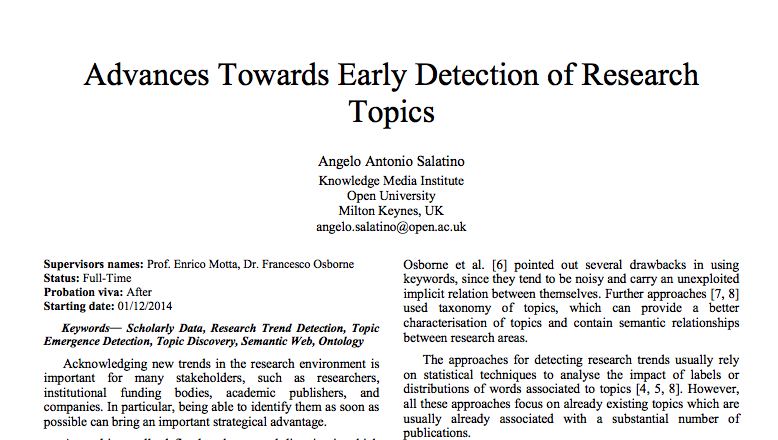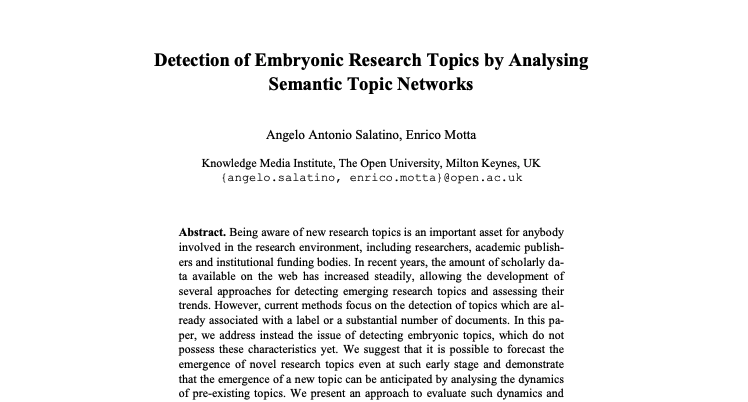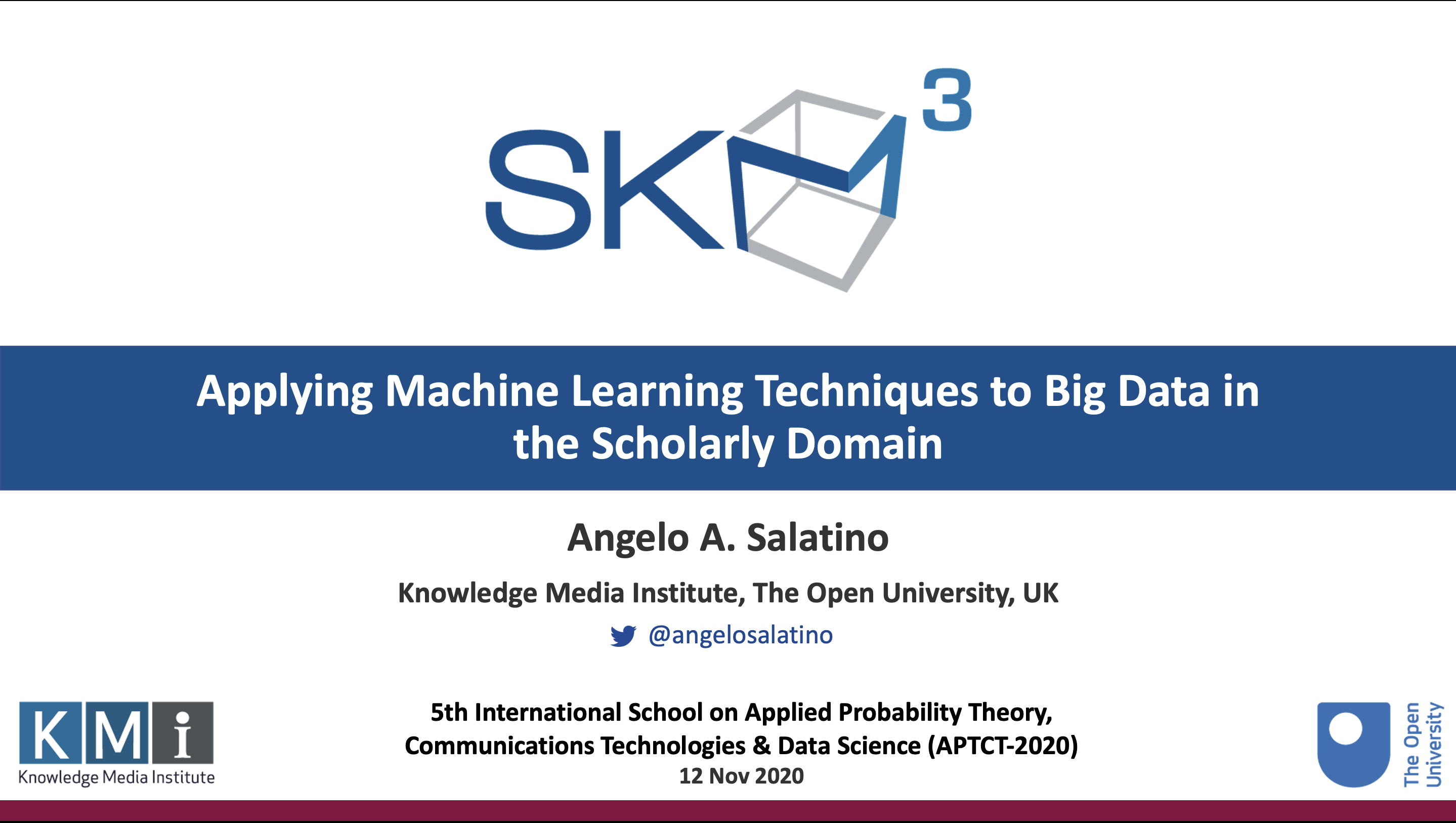Ontologies of research areas have been proven to be useful in many application for analysing and making sense of scholarly data. In this lecture, I will present how we produced the Computer Science Ontology (CSO), which is the largest ontology of research areas in the field of Computer Science, and discuss a number of applications that build on CSO, to support high-level tasks, such as topic classification, research trends forecasting, metadata extraction, and recommendation of books.
Tag: Topic Discovery

Department Research Seminar: Early Detection of Research Topics
On the 8th February I delivered a seminar to my department (KMi @ OU) in which I described the work I have been doing in the last two years for my postgraduate research. I started with a little bit of introduction about science. Shortly, I moved to the currently available technologies for keeping track of the […]

Advances Towards Early Detection of Research Topics
Acknowledging new trends in the research environment is important for many stakeholders, such as researchers, institutional funding bodies, academic publishers, and companies. In particular, being able to identify them as soon as possible can bring an important strategical advantage. A trend is usually defined as the general direction in which something is evolving. It is […]

Detection of Embryonic Research Topics by Analysing Semantic Topic Networks
“Detection of Embryonic Research Topics by Analysing Semantic Topic Networks” is a workshop paper I presented at the SAVESD workshop held in conjunction with the World Wide Web Conference in 2016 in Montreal (CA). Angelo Antonio Salatino and Enrico Motta Abstract Being aware of new research topics is an important asset for anybody involved in […]



